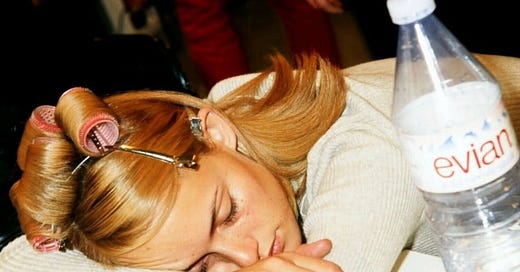Plastic on Plastic
A discussion on microplastics with actionable items, kitchen & dental swaps, & a laundry bag for synthetic fabrics.
Examining Micro- and Nanoplastics
This week’s newsletter dives deeper into micro- and nanoplastics with a breakdown of a podcast on the topic. Plastic is ubiquitous and basically unavoidable at this point, but there are ways you can prevent certain exposures with the action items below. In addition, some easy kitchen and bath swaps and a laundry bag designed for synthetic clothing.
MODERN WISDOM: Dr. Rhonda Patrick - How Microplastics are Ruining Your Health
MAIN TAKEAWAYS
Microplastics: smaller than five millimeters; Nanoplastics: smaller than 100 nanometers
Sources of micro- and nanoplastics: bottled water, food stored and especially heated in plastic, municipal water (particles airborne through aerosolization, falls with rain, & water treatment plants don’t remove those level of plastics), in soil from rain runoff, tire shedding (plastic cords), washing & drying synthetic clothes (“dryer is atomizing your microplastics and pushing them into the atmosphere”)
Organs: Found throughout the body including the brain, heart, liver, kidneys, lungs, testes, reproductive organs, placenta
2024 studies show “that microplastics seem to accumulate in the brain 10 to 20 times more than other organs.” Dr. Patrick hypothesizes that’s because we’re also breathing these in and they bypass the blood-brain barrier
“In that same study, they looked postmortem… and those individuals that had dementia and Alzheimer's disease had 10 times more microplastics in their brains than people that did not have dementia and Alzheimer's disease.”
Effects on Men:
Endocrine disruption & lowering testosterone; higher levels of BPA = lower testosterone
Studies show microplastics found in testes and semen
Affecting sexual development of boys, for example, undescended testicles
Disrupted morphology: the structure of sperm and motility
Effects on Women:
Fertility: “… there's been studies on in vitro fertilization and women that have high levels of BPA, they have 50 percent less viable eggs.”
A study connecting women with higher urinary BPA levels with a greater likelihood of having a child with autism
AVOID
Plastic water bottles
Heating food in plastic
Plastic kitchen utensils
Black plastic especially as can be made from recycled electronics
Drinking hot beverage from to-go cup (many paper cups have plastic liners)
Canned goods; plastic liners as well
Unfiltered tap water - invest in high quality filter or reverse osmosis (important to re-mineralize water with reverse osmosos)
Teabags made of nylon
Internally venting dryer, Dr. Patrick also suggests investing in quality home air filters
Personal products (cosmetics, shampoos, deodorants, creams, etc.) with phthalates or the word fragrance
“If the word fragrance is in the ingredient list, that means there's phthalates. And parfum, not perfume, but parfum. That is another chemical that means there's phthalates.”
BPA, BPS, PFAS
Touching receipts whenever possible as coated in BPA
Non-stick pans (instead use stainless steel, cast iron, ceramic) - options HERE
Microwavable popcorn
A FEW KITCHEN & DENTAL SWAPS
KITCHEN
Single piece, solid wood cutting board (no joints or glue)
DENTAL
Plastic-free toothbrushes, including the castor oil bristles, here & here & even electric heads
WASHING BAG FOR SYNTHETIC CLOTHING
Particles shed when washing synthetic fabrics and as they’re extremely hard to filter out, they can eventually end up in sewage sludge and the environment.
I understand the irony here: a synthetic bag to reduce & capture synthetic shedding but according to Guppyfriend, the bag is made of monofilaments which “resemble sticks rather than threads and do not lose any fibers themselves.”
The bag can also extend clothing life and replace a laundry bag you may already use for delicates.
Take care this week! -BB
IG: Follow along @welleditednewsletter.
Well Edited is currently pay-as-you-wish with no gated content. Thank you for trusting my recommendations and supporting the newsletter.
Archives
Posts on the Substack app may contain affiliate links where I earn a small commission from purchases.













I can always count on you to help me weed out the toxins from my life!